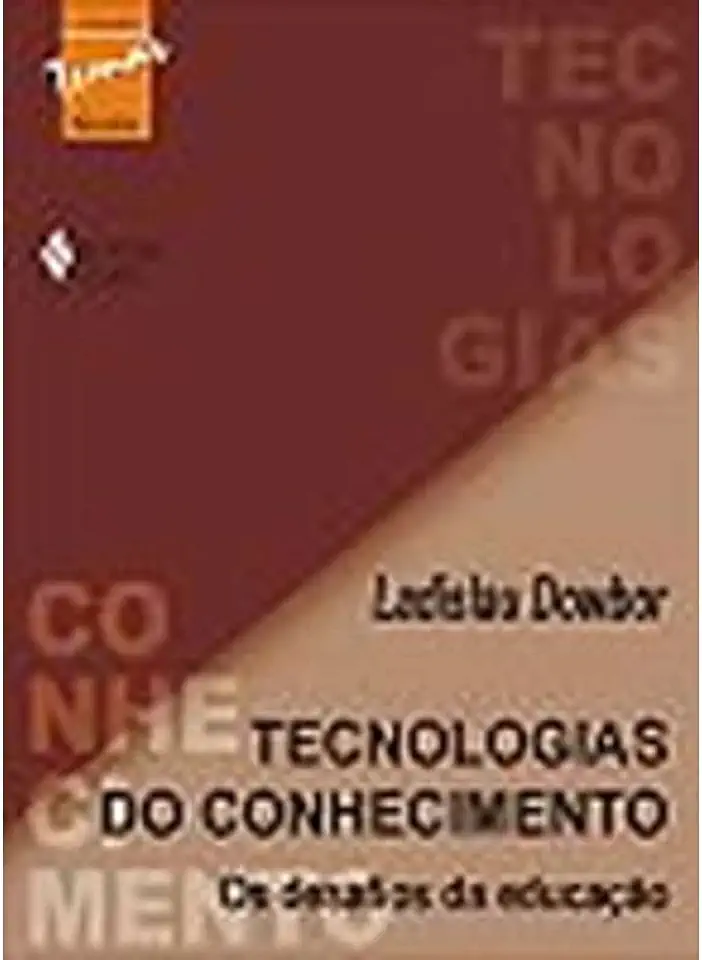
Knowledge Technologies - the Challenges of Education - Ladislau Dowbor
Knowledge Technologies: The Challenges of Education by Ladislau Dowbor
A Revolutionary Approach to Education
In his groundbreaking book, "Knowledge Technologies: The Challenges of Education," Ladislau Dowbor presents a compelling vision for transforming the way we think about and approach education. Dowbor argues that the traditional education system is no longer adequate to meet the demands of the 21st century and that we need to embrace new knowledge technologies to create a more dynamic, engaging, and effective learning environment.
Key Features of Knowledge Technologies
Dowbor identifies several key features of knowledge technologies that make them so well-suited for education. These include:
- Interactivity: Knowledge technologies allow students to interact with the learning material in a way that is simply not possible with traditional textbooks. This interactivity helps to keep students engaged and motivated, and it also allows them to learn at their own pace.
- Collaboration: Knowledge technologies make it easy for students to collaborate with each other, both inside and outside of the classroom. This collaboration can help students to develop critical thinking skills, problem-solving skills, and communication skills.
- Personalization: Knowledge technologies can be tailored to meet the individual needs of each student. This allows students to learn at their own pace and in a way that is most effective for them.
- Accessibility: Knowledge technologies are accessible to students of all ages and backgrounds. This means that everyone has the opportunity to benefit from a high-quality education, regardless of their circumstances.
The Benefits of Knowledge Technologies in Education
Dowbor argues that knowledge technologies have the potential to revolutionize education by providing students with a more engaging, effective, and personalized learning experience. Some of the specific benefits of knowledge technologies in education include:
- Increased student engagement: Knowledge technologies can help to keep students engaged and motivated by providing them with interactive and collaborative learning experiences.
- Improved student achievement: Knowledge technologies can help students to learn more effectively by providing them with personalized learning experiences and by allowing them to collaborate with others.
- Reduced dropout rates: Knowledge technologies can help to reduce dropout rates by making learning more engaging and relevant to students' lives.
- Increased access to education: Knowledge technologies can make education more accessible to students of all ages and backgrounds, regardless of their circumstances.
The Challenges of Knowledge Technologies in Education
While knowledge technologies have the potential to revolutionize education, there are also a number of challenges that need to be addressed in order to realize this potential. Some of the challenges of knowledge technologies in education include:
- Cost: Knowledge technologies can be expensive to implement, and this can make it difficult for schools to adopt them.
- Access: Not all students have access to the technology needed to use knowledge technologies. This can create a digital divide between students who have access to technology and those who do not.
- Teacher training: Teachers need to be trained in how to use knowledge technologies effectively in the classroom. This can be a time-consuming and expensive process.
- Curriculum development: New curricula need to be developed that are specifically designed for use with knowledge technologies. This can be a complex and challenging process.
Conclusion
Despite the challenges, Dowbor argues that the benefits of knowledge technologies in education far outweigh the risks. He believes that knowledge technologies have the potential to transform education and to create a more just and equitable society.
If you are interested in learning more about the potential of knowledge technologies in education, I highly recommend reading Ladislau Dowbor's book, "Knowledge Technologies: The Challenges of Education." This book is a must-read for anyone who is interested in the future of education.